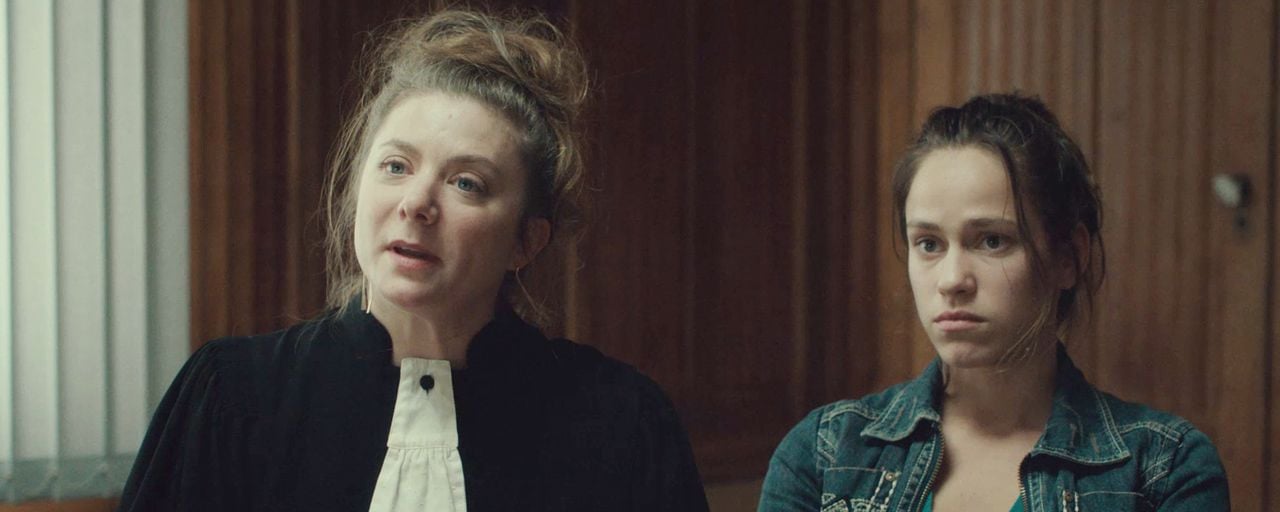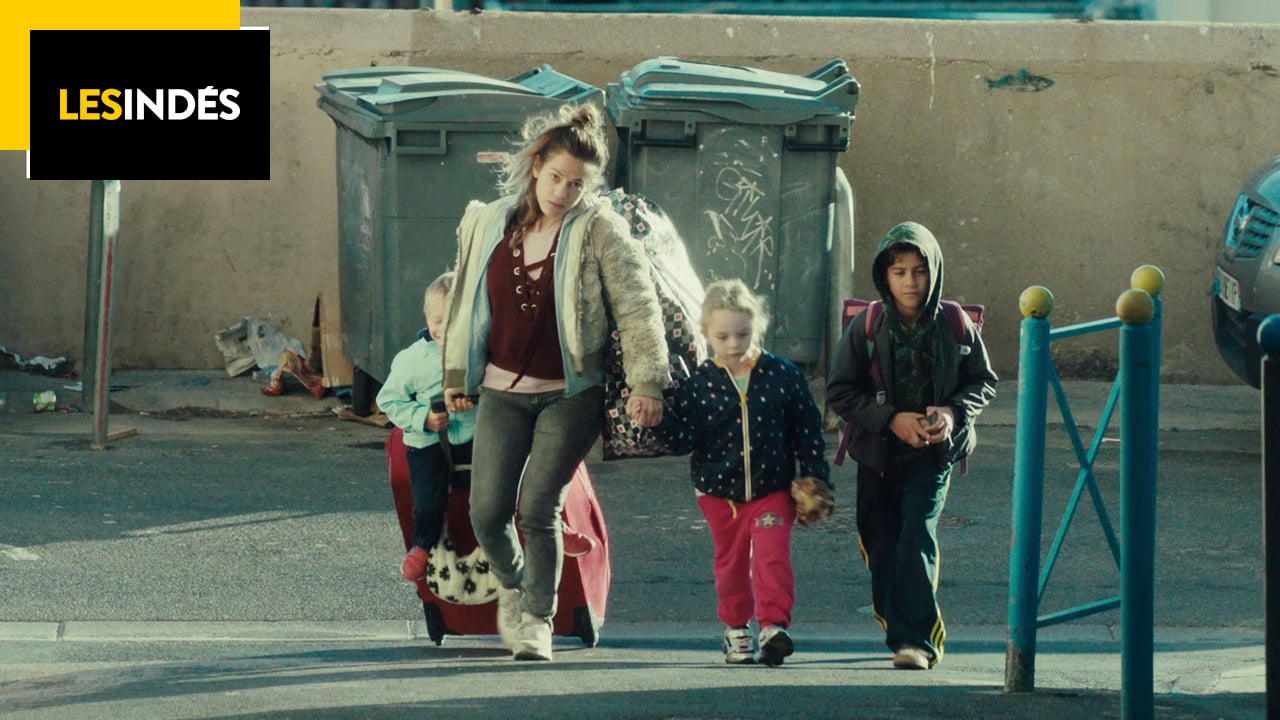“Comme une louve” with Mathilde La Musse, Sandrine Bonnaire and Sarah Suco is released this Wednesday in our cinemas. A look back at the birth of this social film on solidarity.
Twelve years after her first feature film for television, Joseph l’Insoumis (awarded the Audience Prize and the Grand Prize at the Luchon Audiovisual Creation Festival in 2011), director Caroline Glorion directs her first cinema film , the social drama Like a Wolf.
Also a journalist, writer and director of television documentaries, Caroline Glorion is very involved in community life and mutual aid. Joseph l’Insoumis also traces the fight of Joseph Wresinski, the founder of the ATD Fourth World movement. Her commitment to this movement, as well as her companionship with the Emmaus Movement and the International Prison Observatory, have a profound impact on the stories she chooses to tell. With Like a wolfCaroline Glorion offers an innovative look at the placement of children from families deemed “economically fragile”.
Led by Mathilde La Musse, Sandrine Bonnaire, Sarah Suco, Naidra Ayadi, François Morel and Laurence Côte, Comme une louve follows Lili (La Musse), a young woman of 26 who raises her three children alone. Wrongly accused of mistreatment, social services take them away from her. She collapses but very quickly, surrounded by strong women and a budding love, Lili launches into a decisive battle to rebuild her family.
Alba Films Mathilde La Musse
Inspired by a True Story
The director and co-writer explains in the press kit that she became interested in the subject after being addressed by a spectator during a screening of her film Joseph l’Insoumis, which takes place in the 1960s.
Caroline Glorion remembers: “EShe liked the film but protests: Why did you depict poor families “in the 60s”? Why not have the courage to film “poverty today”? Why not tell what we are experiencing? She then explains that her baby born with a heart defect has just been taken away from her. Due to her social and economic situation, she was deemed incapable of raising him. It’s like his guts have been ripped out. Her reason for living had just been taken away, her reason for fighting to hope to offer her baby a better life than her own. We didn’t give him any chance.”

Alba Films
Mathilde La Musse
A challenge which had the effect of a bomb in the mind of the filmmaker, even though she was already aware of this sad reality. “Even though for years I had known this reality, that of the numerous decisions to “place” children from families modestly designated as “economically fragile”, I received this testimony like a punch in the stomach. Indeed, although in France we fortunately protect the children of abusive or violent parents, two thirds are nevertheless placed on the grounds of the social and economic situation of their parents.” she explains.
Releases, news, interviews… Find all the latest news on Indie films
From then on, Caroline Glorion inquired and began to meet families whose children had been taken away. “I listened to stories of humiliated fathers, broken or indignant mothers. And then one day in Caen, at the ATD Quart Monde House, I met Angélique, from whom the character of Lili is largely inspired. Her story too. Battered woman having fled her husband, mother of three children, she had found refuge in a shelter. From then on the young woman was observed, judged and considered unfit to raise them. Her children were placed in care and she was grants visiting rights “under supervision”“.

Alba Films
Sarah Suco & Mathilde La Musse
A heroine far removed from the stereotypes of the dumped mother
A young woman who upsets the director and who inspires the character of Lili. Caroline Glorion makes her heroine a woman who goes against the clichés of the marginal, completely outdated mother. A course of action that the filmmaker set for herself from the start. If we sense Lili’s social origins quite quickly, we are especially marked by her personality, her vitality and her survival instinct.
The filmmaker states: “II also met social workers dedicated body and soul to their work but so often deaf to the true aspirations of the families in their care. From then on I knew that I had to portray this tragic misunderstanding between these “social professionals” and these deprived families… which so often leads to the placement of children.”

Alba Films
Sabdrine Bonnaire
The renowned actress Sandrine Bonnaire here plays the role of Edith, the social worker. She explains that she agreed to play in the film largely because it highlights solidarity and mutual aid.
A film about solidarity
“The scenario rang true because it had been written based on the experiences of several women, and it was very well-substantiated. Caroline is an outstanding documentary filmmaker who knows a lot about a multitude of areas, including social issues. , in its entirety. She explained to me that, in her scenario, everything was inspired by reality, but that she had been careful to ensure that its technical aspect did not take precedence over the emotion she wanted which he exudes. Hence the space that his story leaves for Lili’s three young children, who provide the film with some of its most touching scenes.
I’m happy to have accepted this unsympathetic role at first, because it gives me the opportunity to defend a film that highlights solidarity, a notion that is very important to me. And then, also, on a much more personal level, her heroine, Lili, reminds me of my mother who struggled, very young, with her first children.”
A social and committed film which breaks stereotypes and shows that mutual aid and friendship are essential. Like a wolf is currently in cinemas.
